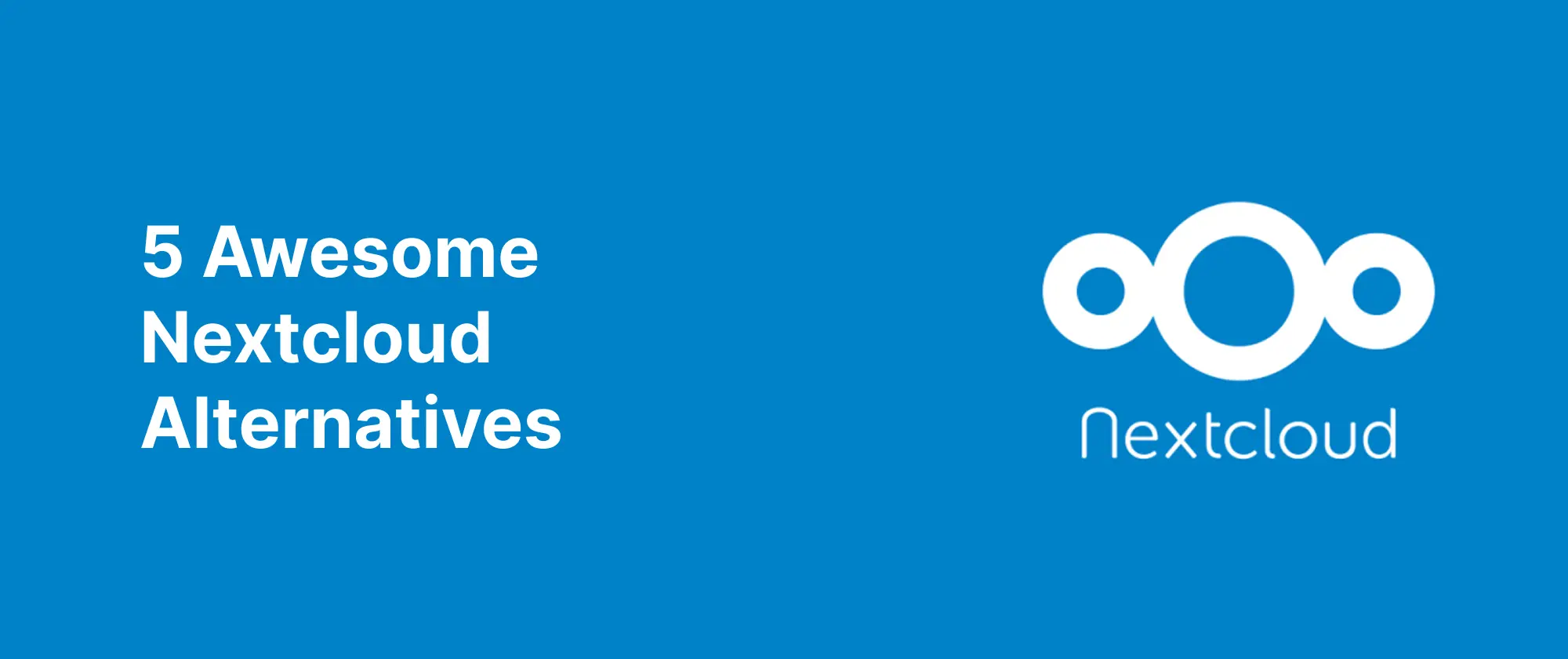
5 Awesome Nextcloud Alternatives
 Jonas Scholz
Jonas ScholzIf you've been using Nextcloud, you might be reconsidering your options. Perhaps Nextcloud is resource-intensive for your infrastructure, or maybe you'd prefer a simpler solution that matches your specific needs. If you're interested in setting up Nextcloud yourself, check out our complete guide to self-hosting Nextcloud on Ubuntu. Thankfully, multiple self-hosted solutions exist, providing various features ranging from strong security to user-friendly interfaces. Let's explore five solid alternatives you can consider.
1. ownCloud
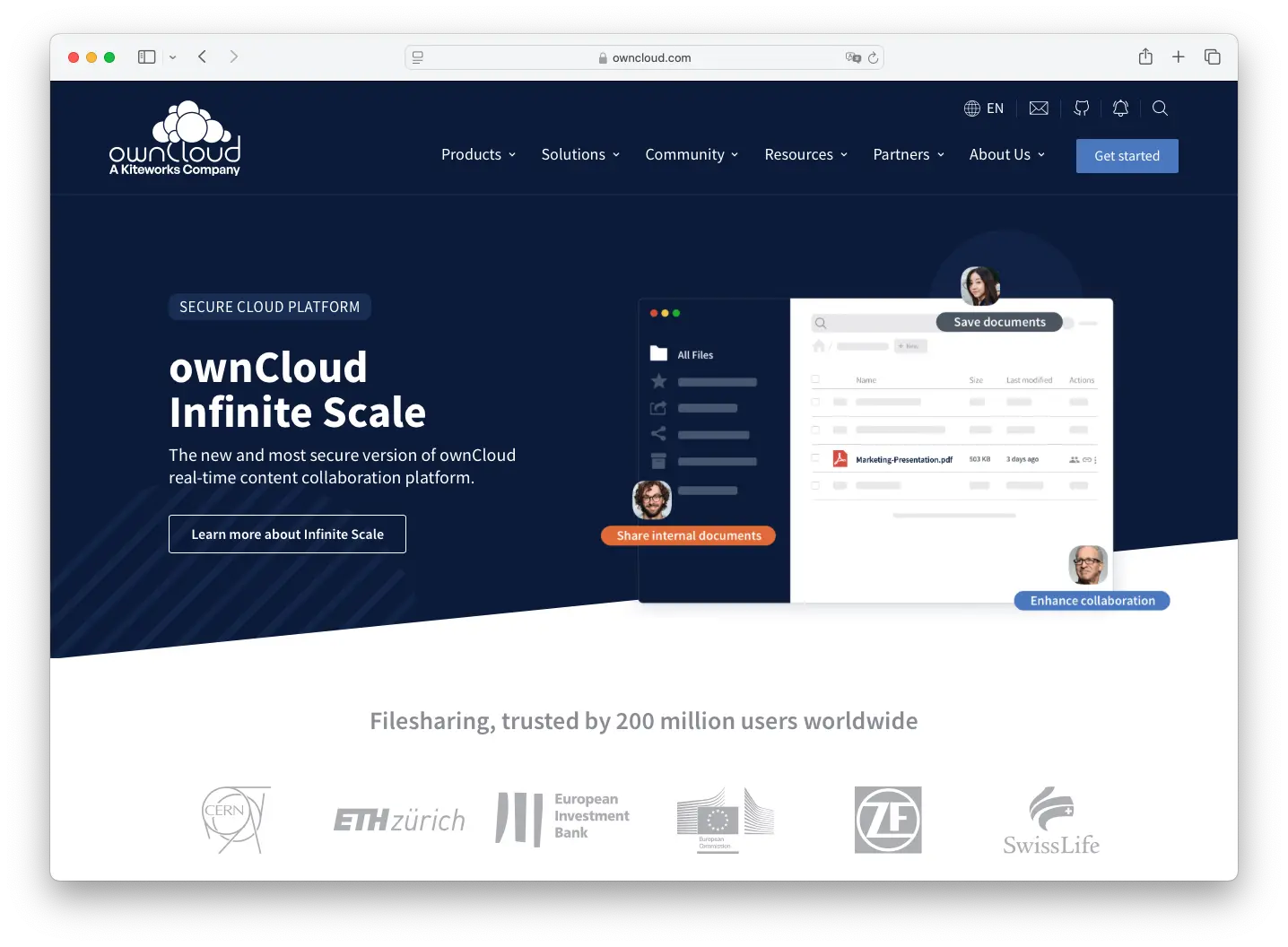
ownCloud was the platform Nextcloud originally forked from. ownCloud remains a reliable solution for self-hosted file syncing, sharing, and collaboration. It offers a simple approach to managing data securely on your own servers. Want to try ownCloud? Follow our step-by-step tutorial for self-hosting ownCloud on Ubuntu.
- Deployment Options: Self-hosted on your hardware or through cloud providers.
- Security Features: Provides file encryption and two-factor authentication globally managed from a central admin panel.
- User-Friendliness: Straightforward interface; however, initial deployment and maintenance require familiarity with server administration.
- Customization: Supports plugins and integrations, allowing adjustments to meet specific needs.
Strengths: A mature and stable solution with good documentation, suitable for large organizations familiar with managing their infrastructure.
Weaknesses: Might require significant resources in large setups and can be challenging for inexperienced admins.
2. Seafile
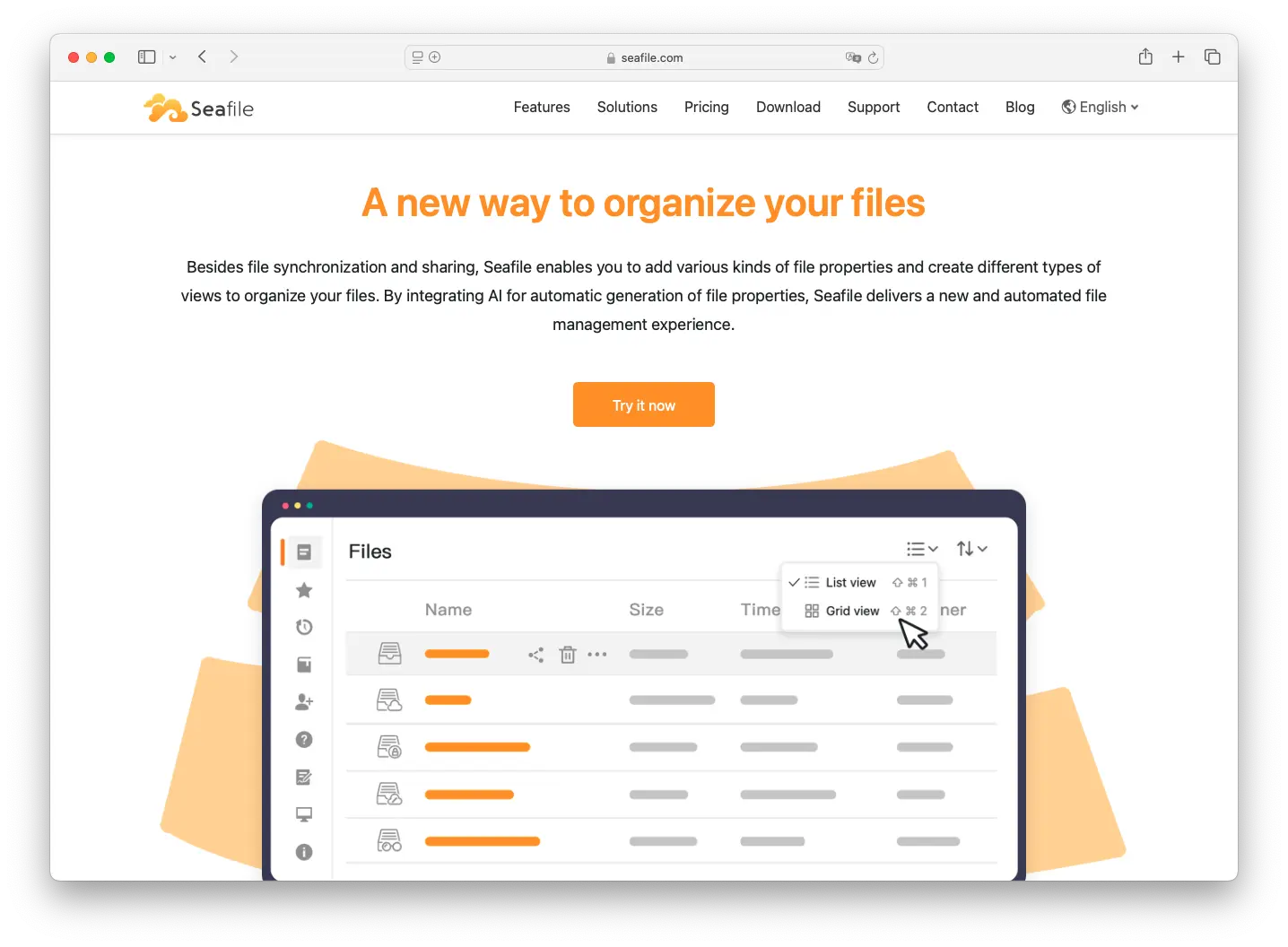
Seafile provides reliable file synchronization targeted at performance and stability. It's efficient and ideal when handling larger files or big teams with extensive sync activities across various locations.
- Deployment Options: You can easily install Seafile on your own infrastructure or with popular cloud-hosting providers.
- Security Features: Built-in file encryption, client-side encryption option, and two-factor authentication.
- User-Friendliness: Setup may seem technical initially, but daily usage is straightforward. It specifically targets a simple, no-frills experience.
- Customization: Offers decent customization, primarily focused around file sync and collaboration but fewer integrations compared to Nextcloud.
Strengths: Great performance, solid reliability, and straightforward interface highly suited for large enterprises focused on document collaboration.
Weaknesses: Limited extended collaboration features; doesn't include advanced options like calendars or task management by default.
3. Pydio
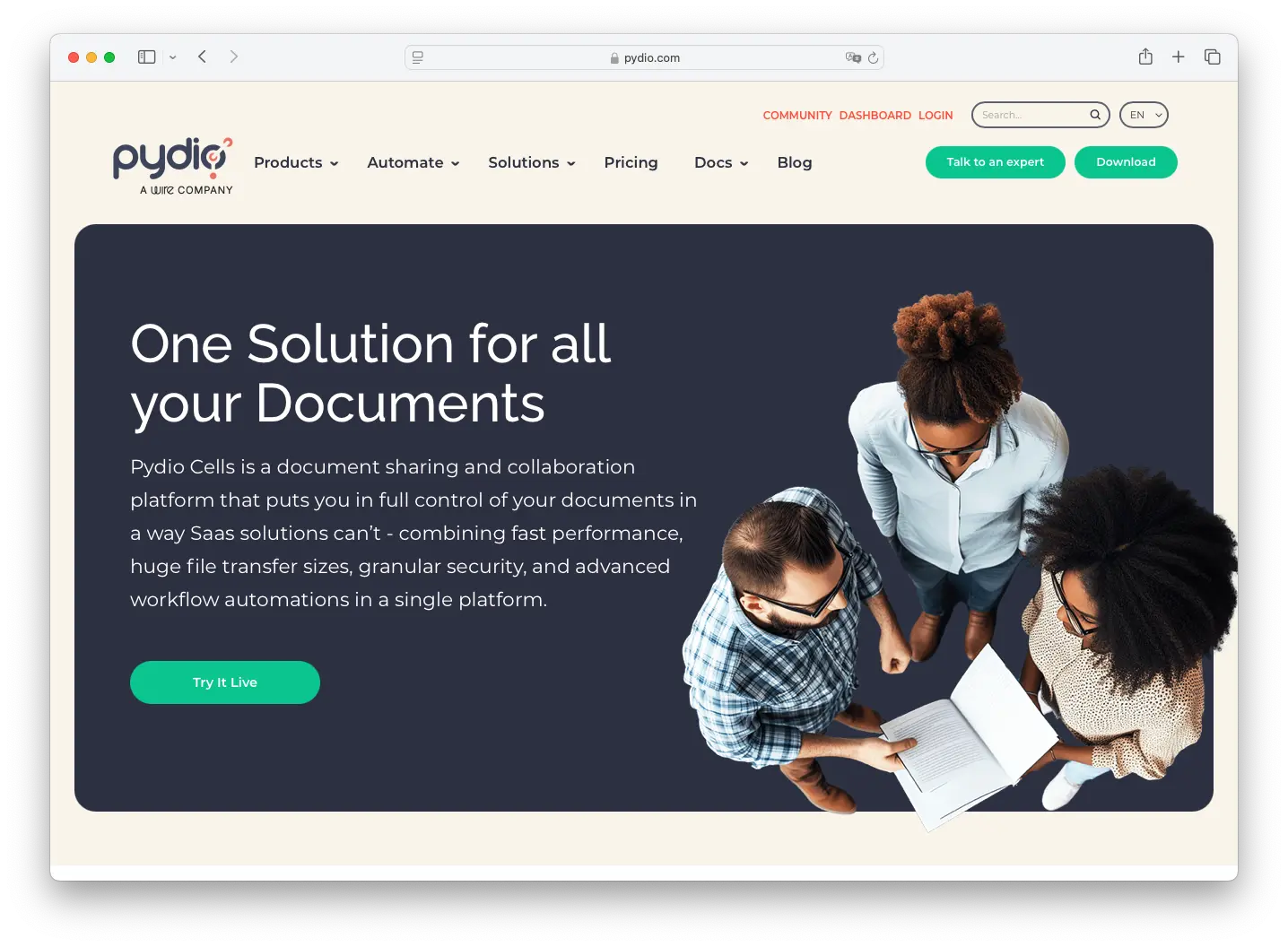
Pydio offers secure file sharing and collaboration designed around enterprise needs, including workflow automation and security-focused settings. Its role-based access controls make it useful for companies prioritizing security compliance.
- Deployment Options: Primarily targeted toward self-hosting on your own servers, supporting Linux and Windows environments.
- Security Features: Advanced access control settings, built-in encryption, and audit features for compliance.
- User-Friendliness: Installation and setup are straightforward if you're familiar with infrastructure administration, but its complex menus might seem challenging initially for less technical users.
- Customization: Solid—includes features like workflow design, user roles, and permissions setups.
Strengths: Focused on security and compliance for businesses needing safe data control, excellent for regulated environments.
Weaknesses: Overly complex for smaller teams or single individuals, likely too feature-rich if all you want is a simple file-sync solution.
Need an Easier Way to Deploy These Alternatives?
Setting up and maintaining self-hosted cloud storage can be time-consuming and complex. With Sliplane, you can deploy any of these Nextcloud alternatives in minutes:
- One-click deployments - No complex server configuration needed
- Automatic SSL certificates - Secure your data without the hassle
- Built-in backups - Never worry about data loss
- Easy scaling - Upgrade resources as your needs grow
- 24/7 monitoring - We keep your services running smoothly
Deploy Your Cloud Storage Solution Today →
4. Syncthing
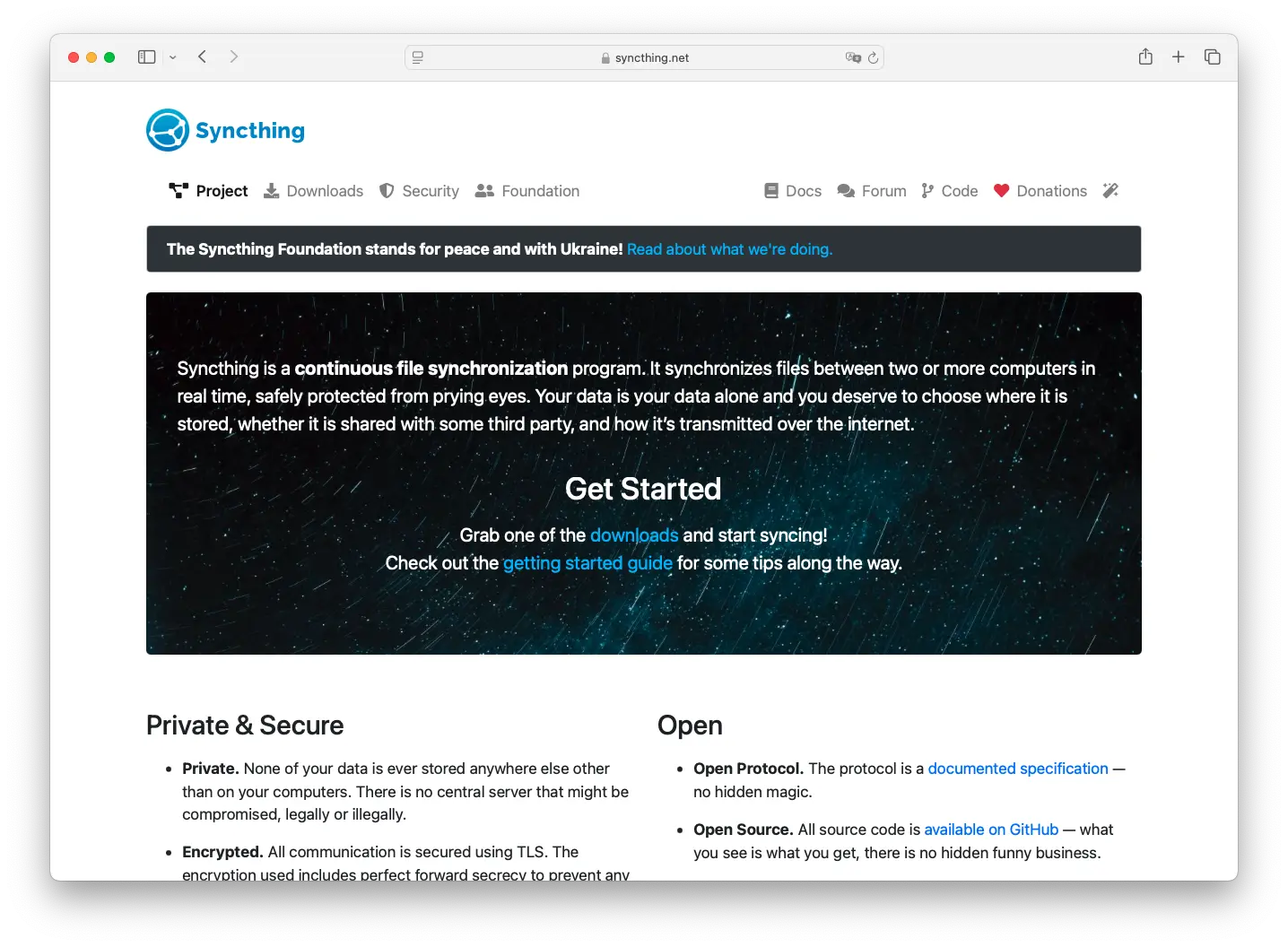
Syncthing differs notably as it doesn't depend on a central server but instead synchronizes files directly peer-to-peer between devices. If you value security, decentralization, and having full control over your data transfers, Syncthing may appeal strongly to you.
- Deployment Options: Completely peer-to-peer synchronization across devices—no central server required.
- Security Features: Features robust end-to-end encryption and secure device identification using cryptographic keys.
- User-Friendliness: Setup requires some initial technical knowledge but running and regular use afterward is fairly straightforward via a simple web interface.
- Customization: Minimalist feature set; customization options limited mainly to folder policies, transfers, and basic sync parameters.
Strengths: Excellent solution if privacy and data security without centralized dependence are crucial for you—especially attractive for tech-savvy individuals.
Weaknesses: Lacks traditional centralized admin management tools. Teams needing complex permission management or detailed reports could face challenges.
5. Cozy Cloud
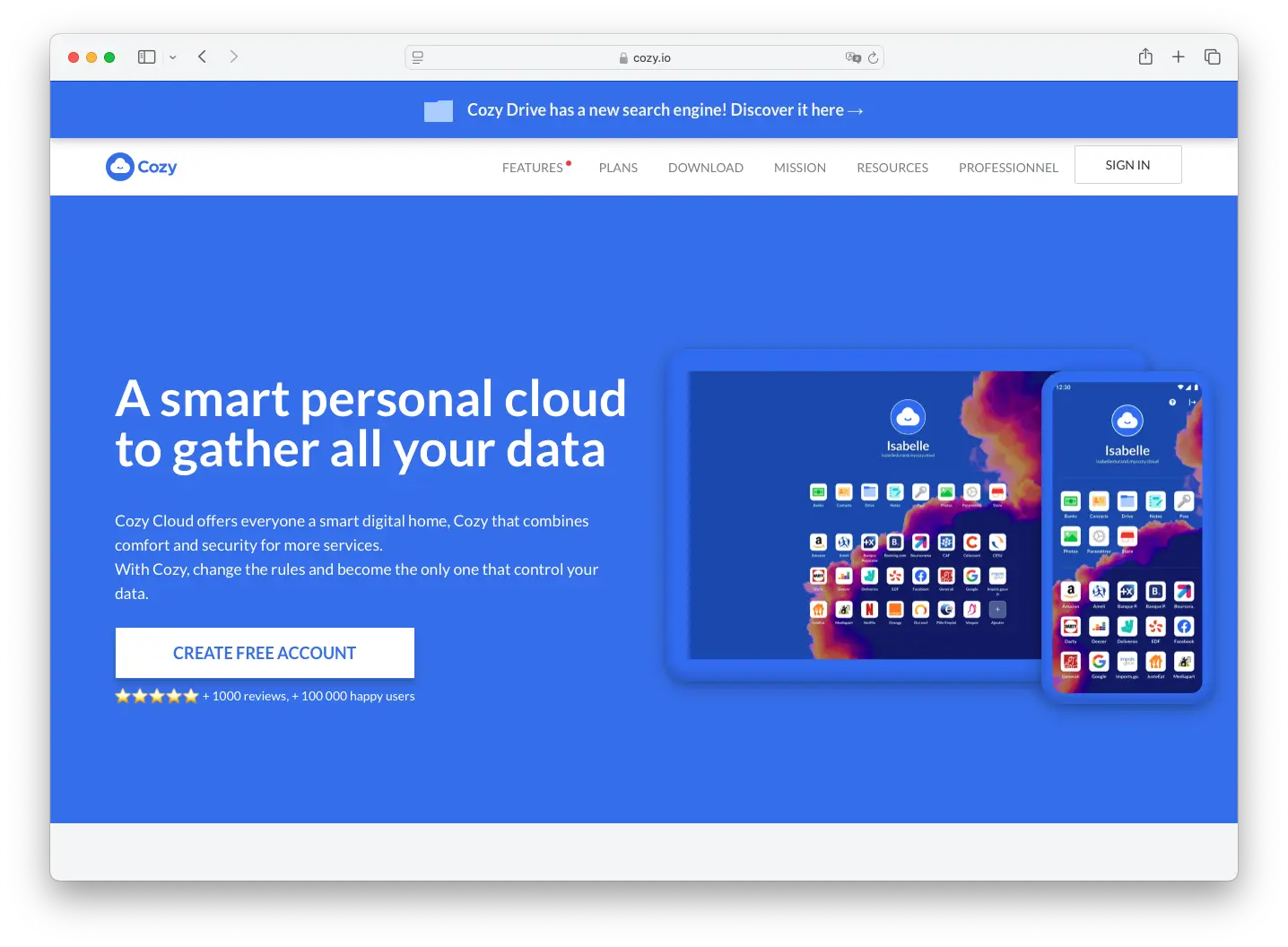
Cozy Cloud is a friendly, approachable, open-source solution oriented toward personal data management. It lets you conveniently manage files alongside private notes, passwords, and even integrates seamlessly with certain online services to centralize your data securely.
- Deployment Options: Self-host on personal hardware or use provided cloud-hosting services.
- Security Features: Encryption options and two-factor authentication ensure a solid security base for your personal data.
- User-Friendliness: Cozy stresses ease-of-use—simple installation (via pre-compiled apps) and timing-saving configurations reduce complexity, perfect for small-scale personal deployments.
- Customization: Good selection of integrations, allowing connections with external services to consolidate and organize your personal information effectively.
Strengths: Ideal choice if you're looking for a personal cloud—its simple user interface allows storing files, organizing notes, passwords, and online data synchronization.
Weaknesses: It is primarily suited for personal use scenarios — business-level feature sets (team-based permissions, audit trails) aren't its target use case.
Conclusion
| Alternative | Deployment Options | Security Features | User-Friendliness | Customization |
|---|---|---|---|---|
| ownCloud | Self-hosted, Cloud | Encryption, 2FA | Medium | Medium |
| Seafile | Self-hosted, Cloud | Client-side Encryption, 2FA | Medium | Medium |
| Pydio | Self-hosted | Encryption, detailed ACL, audit | Medium-High | High |
| Syncthing | Peer-to-peer | End-to-end encryption | Low-Medium | Limited |
| Cozy Cloud | Self-hosted, Cloud | Encryption, 2FA | High | Moderate-High |
Choosing your Nextcloud alternative depends heavily on your requirement. Whether you prefer extended collaboration (ownCloud, Seafile), heightened security and compliance (Pydio), self-contained peer-to-peer privacy (Syncthing), or personal-user simplicity and ease (Cozy), there's an appropriate tool available.
Carefully assess your existing infrastructure, staff familiarity, and security requirements. The right cloud solution must align closely with your actual needs to justify a migration from Nextcloud.
If you're planning to deploy any of these alternatives, our guide on cheap ways to deploy Docker containers can help you choose the right hosting platform. For setting up supporting services like Redis or PostgreSQL, check out our guides on Redis setup and PostgreSQL best practices.
Deploy Your Cloud Storage Solution in Minutes
Ready to move beyond Nextcloud but don't want the hassle of manual server setup? Sliplane makes it simple to deploy any of these alternatives:
Why Choose Sliplane?
- Save Time: Deploy in minutes instead of hours
- Focus on Your Data: We handle the infrastructure, you handle your business
- Flexible Pricing: Pay only for what you use
- Expert Support: Get help when you need it
Getting Started is Easy
- Choose your preferred cloud storage solution
- Select your server location and resources
- Deploy with one click
- Start syncing your files immediately
Whether you choose ownCloud's mature ecosystem, Seafile's performance, Pydio's enterprise features, Syncthing's privacy, or Cozy's simplicity, Sliplane helps you get up and running quickly. Skip the complex setup and focus on what matters—your data.